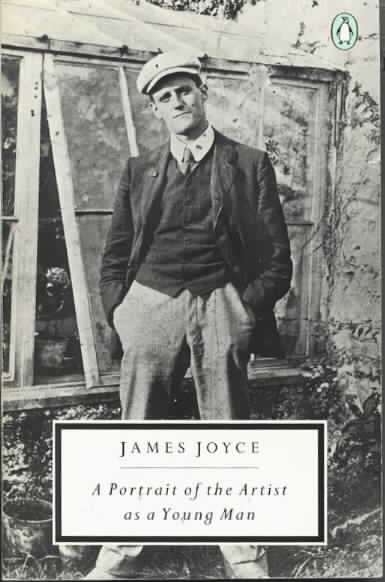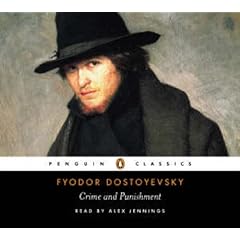I agree with this statement, but I still think that "finding one's feet" is central to adolescence, regardless of how one approaches the creative act. During my adolescence, I made an effort to broaden my horizons and went through a lengthy process of trial and error. But one of the main factors that kept me going was books, and I think there are certain books many people (in particular male people - females usually go after other books not mentioned in this list) read during their adolescence as an effort to broaden one's horizons and to form an identity. I have just come out of adolescence, so I think it is a good time to look back and reflect on those watershed books.
----------

A Portrait of the Artist as a Young Man by James Joyce
Stephen Dedalus (James Joyce's alter ego) rejects Christianity and conventional education in pursuit of trying to create an individual voice. He intends to "forge in the smithy of my soul the uncreated conscience of my race." Through all his searching, Dedalus finds that there is no ultimate ideological or theological truth to follow and that he can pursue his artistic vision without the need for friendships. The voice of the narration, which uses Joyce's newly formed stream of consciousness technique, gradually matures and increases complexity as the character gets older, and in the final pages there is a magnificent shift to first-person narrative where Dedalus avows his intentions.
I read this book in many wood and park benches when I was 16. It was May, 2oo7. Once, two young teenage girls came over to me while I read it in a park bench and started tormenting me, completely perplexed by the sight of a teenager reading a book.
 Crime and Punishment by Fyodor Dostoyevsky
Crime and Punishment by Fyodor DostoyevskyWhen Borges chose Dosoyevsky for a personal library compiled just before he died, he wrote: "Like the discovery of love, like the discovery of sea, the discovery of Dostoyevsky is a memorable date in our life. It is usually around adolescence, where maturity seeks and discovers serene writers." Indeed, I found myself engaged in this text when I read it, identifying with Raskolnikov's misanthropy and solitary life. The levels of tension are overwhelming and one reads this with rapt fascination. For the first time, one also considers all the existential questions that are posed in the book.
I read this book just after reading Portrait, when I was about to turn seventeen. Once, I read it at the local woods at night illuminated by my father's laptop. It was a library copy, and it was stained by blotches of mud after I accidentally dropped it!

The Outsider by Albert Camus
This short novel was voted first in a survey asking men after their milestone fictional work. It is a work that has a strong effect upon the reader's life. The indifference Mersault shows to the murder he commits and his unwillingness to compromise to the court and establishment strikes a strong chord with male readers. Camus' direct prose reflects Mersault's indifference and existential condition.
I read this at the age of seventeen, four or five months before my breakdown. The day I read wasn't in the slightest bit pleasant; I had a horrible fight with my sister because I couldn't read with the noise she was making, I trashed the house and when I went outside to read it was raining. The following day I read the last ten pages at the local park with the sun out, totally immersed in the book.
 Meditations on First Philosophy by Rene Descartes
Meditations on First Philosophy by Rene DescartesThis philosophical text addresses the groundwork of philosophy. It is read by many young people who start questioning philosophical issues, and Descartes' book explores metaphysical thought about God's existence and other concerns like truth and falsehood and the relation between the human mind and body.
I finished reading this text a few weeks ago at the age of 20. I decided to read it in anticipation of studying philosophy at university, and as an attempt to have a basic grasp of the rudiments of the subject.
No comments:
Post a Comment